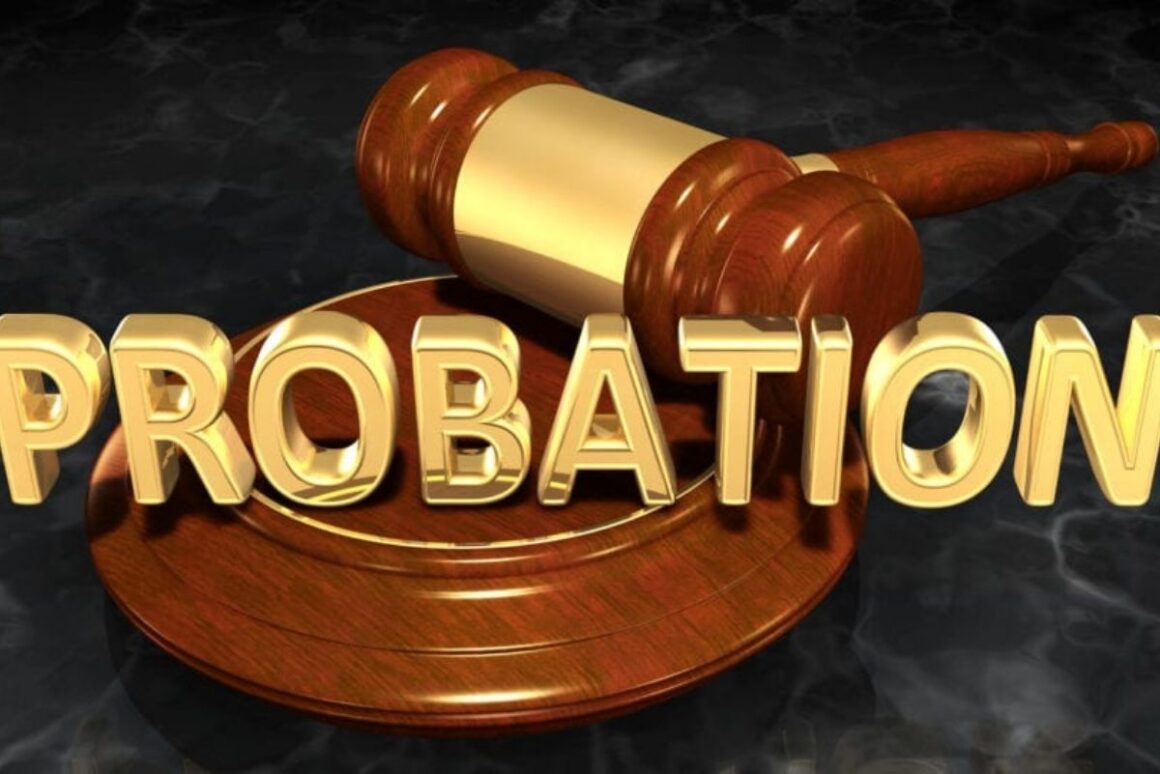When a criminal commits a crime, they are punished. Depending on the class magnitude of the felony, the criminal is punished with jail time or fines. When the person’s said sentence, for instance 7 years sentence period ends, they are sent back into the community to live their normal lives.
But, they’re always on probation. This means that if they violate the terms of the probation, or break the rules in general, they will be sent back to jail.
Probation Revoked and Reinstated
If you were convicted for a misdemeanor or a minor crime, you can complete your sentence by being in the community, but you will be on probation. This means that every act and every action of yours is monitored by an officer and if you were to violate the terms and conditions of your probation, you will be sent back to jail, and probably given a harsher punishment.
One major requirement for probation is for felons to report to their probation officers and have regular meetings with them. If you successfully complete your probation, you may be entitled to have your conviction dismissed if you plead guilty or no contest, or have your conviction set aside if a jury returned a verdict of guilty at trial.
Felony probation often includes conditions such as the following:
- meetings with a probation officer
- payment of restitution
- participation in individual or group therapy
- submission to drug testing, in cases of certain drug crimes in California
- performance of community service or community labor
- agreement to submit to peace officer searches (with or without a warrant).
Probation Revocation Process
There is only one way that your probation can be revoked, and that way is if you’re caught violating any terms of your probation.
If the judge finds you violating one or more of the conditions of your probation, they can easily revoke or terminate your probation. For a first probation violation, the judge may reinstate your probation with or without changing your probation conditions.
However, you may have to serve time in jail as a condition of having your probation reinstated. It is common for a judge who decides to reinstate your probation (in effect, giving you another chance) to require that you serve from 30 to 365 days in jail as a new condition of your probation.
The probation revocation hearing happens in court without a jury, and it is not in the same format as that of a conventional trial. The prosecutor brings in arguments as to why the defendant shouldn’t be given reinstatement on the basis of the violation and the defense may argue the points.
When a defendant arrested on new charges is found to be in violation of an earlier probation order, the defense may negotiate a new plea bargain to cover both cases in one package deal. This is especially common in busy courts where calendars are backlogged.
What happens when your Probation is Revoked?
There are certain things that you should expect when you violate the law, which will eventually lead to your probation being revoked. Firstly, you can be arrested for the violation and sent to the court for your probation violation hearing, your probation term can be increased and you can also be fined. All of this depends on how big the violation is.
For instance, if you committed another felony like theft or assault while on probation, you can be sent to jail for a longer period of time. But if you contacted someone the judge explicitly told you not to, then you will probably be given a very small punishment.
A revoked probation does not automatically mean you will be sent to jail. For instance, upon a revoked probation, a judge may add an extra length to the probation, impose additional fines, or require you to get counseling or attend other treatment programs.
How to fight a Motion to Revoke Probation?
The judge will decide what to do. If they approve the motion to revoke, they will choose a penalty for you (like extra months of probation) or take away your probation. If the judge revokes your probation, you will return to jail or prison.
But there are ways and strategies that you can use to win the case and make sure the probation is not revoked. The defendant should try to gather all sort of evidence to prove that they didn’t violate any terms on the probation, and that they have been very careful throughout.
They can also present mitigating evidence to lessen any punishment, and ask for time served if any jail time is imposed. Basically during the hearing, you just have to prove that you’re worthy of having the probation reinstated and that you have legit grounds to fight a motion to revoke your probation.
Conclusion
If you’re convicted of a felony, there are chances that you’ve been sent out in the community to complete the rest of your probation. And of course, with this comes a list of terms and conditions that you need to fulfil in order to stay in the community. The most common conditions include meeting with the probation officer regularly, going to support groups or therapy sessions, having regular drug testing etc.
Following and respecting these terms and conditions are very important for the probation, and if a felon is caught violating these, they will be sent to prison from 30-365 days depending on the intensity of the violation.
It is important to be mindful of the terms of the probation to make sure that it is never revoked and you’re never sent back to prison. And if you’re able to go through these terms smoothly, you will be off probation in no time.
